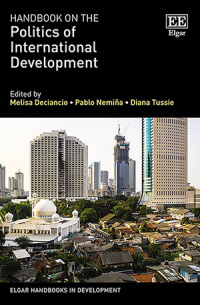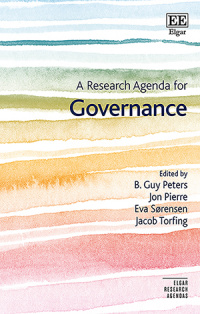Hardback
Research Handbook on Mental Health Policy
This Research Handbook is an essential guide to the design and use of research in mental health policy from a global perspective. It focuses on public mental health, as well as quasi-public and private policies in nations with significant private sectors.
More Information
Contributors
More Information
This Research Handbook is an essential guide to the design and use of research in mental health policy from a global perspective. It focuses on public mental health, as well as quasi-public and private policies in nations with significant private sectors.
Expert contributors explore key mental health policies pertinent to psychiatric treatment and care, as well as those concerned with substance abusers and forensic patients. Organised into five parts, the Research Handbook addresses a wide array of mental health questions involving particular interventions and policies, ranging from psychiatric deinstitutionalization to system building, mental health law, and the human rights of mental patients. In addition, it considers the pros and cons of both established and emerging research methodologies, including geographic information systems and predictive analytics, and ways that these can be effectively integrated with policymaking systems, along with their political, economic, and socio-cultural environments.
This authoritative Research Handbook will be a key resource for scholars and students of mental health policy, social policy and welfare states. It will also be beneficial for policymakers and practitioners involved in public and private mental health programs.
Expert contributors explore key mental health policies pertinent to psychiatric treatment and care, as well as those concerned with substance abusers and forensic patients. Organised into five parts, the Research Handbook addresses a wide array of mental health questions involving particular interventions and policies, ranging from psychiatric deinstitutionalization to system building, mental health law, and the human rights of mental patients. In addition, it considers the pros and cons of both established and emerging research methodologies, including geographic information systems and predictive analytics, and ways that these can be effectively integrated with policymaking systems, along with their political, economic, and socio-cultural environments.
This authoritative Research Handbook will be a key resource for scholars and students of mental health policy, social policy and welfare states. It will also be beneficial for policymakers and practitioners involved in public and private mental health programs.
Contributors
参与者包括:约翰·r·贝尔彻帕特里克·W。Corrigan, Liron David, Eva Dragomirecká, Mencía R. Gutiérrez-Colosía, Hilla Hadas, Jared M. Hirschfield, Christopher G. Hudson, Emily Ihara, Hugo Kamya, John Karavatas, Carla Kundert, Max Lachman, Sylvia Tessler Lozowick, JoAnn Lee, Jonathan Lukens, Ronald W. Manderscheid, Ondřej Pěč, Shulamit Ramon, David A. Rochefort, Sebastian Rosenberg, Luis Salvador-Carulla, Jose A. Salinas-Perez, Russell K. Schutt, Phyllis Solomon, Yvonne Vissing, Amy Ward, Jaap van Weeghel, Michael Wolf-Branigin, Echo Yuet Wah Yeung, Reginald O. York





